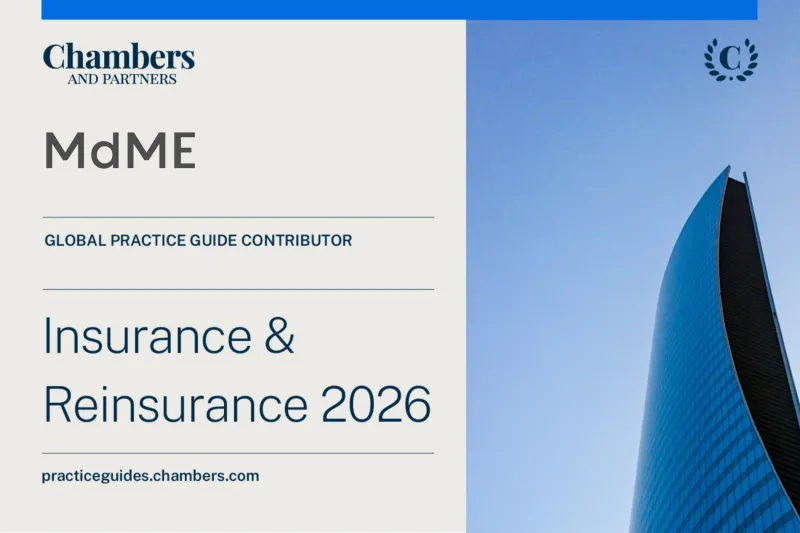Macau's Investment Funds Law | 10 Takeaways
Overview
The new Macau Investment Funds Law (Law No. 11/2025 or “IFL”) introduces a significant improvement to Macau’s financial landscape, replacing the previous 1999 framework. The IFL forms part of the government’s broader strategy to diversify the economy and foster a strong financial services sector, offering clarity and security for fund sponsors, managers, and investors.
The IFL aims to achieve 5 key policy objectives:
- Aligning Macau’s regulatory framework with international supervisory standards
- Enhancing protections for investors
- Removing barriers to the establishment and operation of fund managers
- Creating an attractive environment for overseas investors and fund managers
- Supporting the foundation of a stable fund market, while connecting Macau with international financial markets
"The IFL provides a robust and adaptable structure that meets international standards, aiming to make Macau an attractive hub for investment fund domiciliation."

1. Legal Forms
The law allows investment funds to take one of three forms: contractual funds (CF), investment companies (SIC), or limited partnerships (LPF). Each form comes with its own implications for liability, governance, and investor rights, letting fund sponsors structure their funds to meet specific operational and tax goals.
- Contractual Funds (CF): Independent asset pools without legal personality; assets are managed according to the fund contract. Some CFs appoint custodians or trustees; others let investors co-own assets under the terms defined by statute or agreed under contract.
- Collective Investment Companies (SIC): Established as limited liability joint-stock companies (sociedades anónimas), SICs operate under the Macau Commercial Code except where the IFL provides otherwise. SICs have fixed capital when managing closed funds and variable capital when managing other types of funds. In Variable Capital Companies (VCCs), share capital corresponds to the company's net asset value at any given time, fluctuating according to subscriptions and redemptions. SICs can appoint a fund manager or self-manage, with specific governance and registration rules.
- Limited Partnership Funds (FPL): These partnerships are established by contract and do not have separate legal personality but must be registered with the Macau Commercial Registry. They include general partners, who are responsible for the formation and operation of the partnership, as well as limited partners, who do not participate in management and are liable only up to their contributions. If the general partners are not licensed fund managers, a licensed manager must be appointed. The IFL specifies requirements for partnership agreements and outlines the roles of both types of partners.
Private funds may utilise any of the three available structures, whereas public funds are restricted to CFs or SICs. The adoption of limited partnerships for private funds aligns Macau with international standards, as such arrangements are widely used for private equity and venture capital funds in global markets.
2. Public vs. Private Funds
Funds are classified as public or private based on their fundraising methods.
- Public Funds: are aimed at retail investors, need authorisation from the Monetary Authority of Macau (AMCM) and must meet strict governance and disclosure standards. They can raise capital through public channels, such as media and seminars.
- Private Funds: target qualified investors using non-public channels and enjoy a lighter regulatory regime. They are subject to regulatory notification only and are exempt from appointing a custodian.
Qualified investors are currently defined as individuals with at least MOP8 million (approx. USD1 million) in financial assets, or entities with at least MOP40 million (approx. USD10 million) in assets.
3. Fund Structures and Operational Models
The IFL permits several types of fund structures, which facilitate the use of different investment strategies:
- Umbrella Funds: composed of multiple sub-funds, each with its own assets and investment strategy, it offers asset and liability segregation and tailored risk management.
- Master-Feeder Funds: Feeder funds pool capital into a central master fund, allowing efficient management across different investor groups or markets.
- Funds of Funds: A single fund that invests primarily in other funds, providing diversification through a master fund structure.
Funds may be open-ended (allowing ongoing subscriptions and redemptions), closed-ended (fixed number of units, often traded), or hybrid (combining elements of both). Fund documentation must clearly outline operational rules, including subscription, redemption, valuation, and distribution, within the framework of the IFL.
4. Scope of Investment
The IFL categorises funds according to their investment objectives, which are determined by the types of eligible assets they are permitted to hold:
- Securities Investment Funds (SIFs): invest in listed securities, debt instruments, money market instruments, and other funds units.
- Real Estate Investment Funds (REIFs): invest in various real property types (at least 75% of assets), real estate development projects (up to 25%), and other assets (up to 25%).
- Alternative Investment Funds (AIFs): include private equity, venture capital, commodity funds, and other funds investing in non-traditional assets.
5. Governance
The IFL sets clear roles responsibilities for key fund sector players, namely fund managers, custodians, and distributors. All entities must act with prudence, honesty, diligence, and independence, always prioritising investors’ interests. Relationships that could create conflicts of interest are regulated and subject to AMCM approval.
- Fund managers face rigorous requirements around governance, capital, staffing, internal controls, and risk management. They must incorporate in Macau with at least MOP3 million (about USD372,000) in share capital and obtain authorisation from the Chief Executive. Annual licensing fees are capped at MOP90,000 (about USD11,000). Banks and financial institutions may also serve as managers, and outsourcing is allowed with strong contractual safeguards.
- Custodians must be authorised financial institutions, acting independently from managers unless proper safeguards are in place. They are mandatory for public funds, with strict requirements for internal controls, recordkeeping, accounting and administrative systems. Overseas custodians may also be appointed, provided they are incorporated and licensed in a jurisdiction deemed suitable, subject to effective prudential supervision and are of good repute in their local market.
- Fund Distributors are responsible for marketing fund units and must adhere to strict principles of transparency, accuracy and fairness. Authorised distributors may market foreign funds, provided these have been pre-approved by AMCM.
6. Investors’ Rights and Protections
Investors, or participants, are granted a variety of rights under the IFL, including:
- Participation in profits and liquidation proceeds
- Voting rights
- Access to information
- Right to pursue legal action if their interests are affected
Fund assets are legally separated from those of managers and service providers to protect investors in cases of insolvency. The law sets out detailed rules for unit registration, transfer, and blocking, supporting clear and secure ownership.
In addition, Fund managers must provide investors with:
- Constitutional documents (covering structure, governance, investment policies)
- Prospectuses (covering operations, risks, fees, and investor rights)
- Key information documents (summarising essential facts in accessible language)
- Interim and annual reports (including financial statements, performance reviews, and audits)
These documents are required to be made available to investors and submitted to the AMCM. Managers must publish regular fund value updates and material event notices. Recordkeeping standards require that records are accessible for regulatory audit to ensure investor protection and compliance with anti-money laundering regulations.
7. Oversight
The AMCM supervises funds, managers, and custodians, authorises public funds, and enforces compliance with governance, disclosure, and risk standards. AMCM sets prudential rules, monitors investor protections, and oversees cross-border fund activities. It holds authority to conduct inspections and impose sanctions for violations. Penalties may include fines, suspension of operations, license revocation, public disclosure of violations, and confiscation of illegal gains. The AMCM can also take special actions to protect the public interest, such as suspending key entities or stopping fund investments.
8. Marketing and Re-domiciliation of Overseas Funds
Public fundraising overseas is permitted when carried out by a licensed financial institution and subject to approval from the AMCM. Private fundraising from qualified investors does not require prior approval, provided it is conducted by a licensed financial institution and appropriate disclosures are made.
The law also supports the re-domiciliation of foreign funds to Macau, ensuring legal continuity and the protection of investor rights. This process is streamlined, tax-neutral, and requires authorisation from the AMCM, enabling funds to retain their historical records and contractual agreements.
9. Netting Enforceability
The IFL recognises netting agreements for fund assets established with AMCM-approved clearing systems. Netting provisions, such as closeout netting and set off, remain effective during insolvency proceedings, ensuring Macau formed funds operate under similar conditions to funds formed in jurisdictions where netting is commonly permitted.
10. Taxation
Macau offers an investor-friendly tax regime for investment funds. Under the new Tax legislation effective January 2026, Macau adopts a source-based taxation model, meaning funds will be generally taxed only on income generated within Macau. Profits above MOP600,000 are taxed at 12%, with lower profits exempt. There are no stamp duties on fund units, no withholding tax on distributions, and no capital gains tax. Other tax benefits are expected to be granted by the 2026 Government Budget Law.






